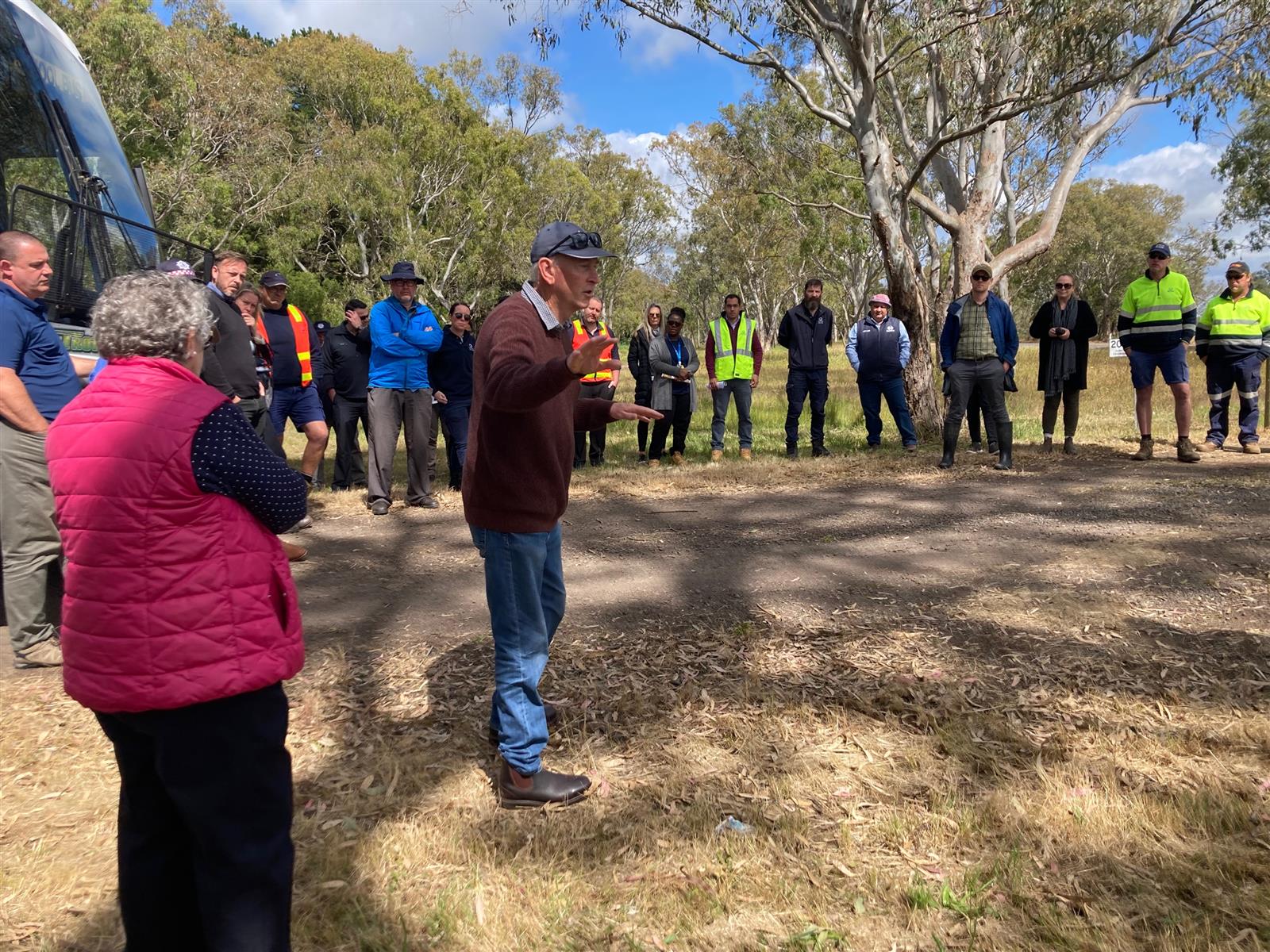
CFA's Community Safety Team in the south-west collaborated with Southern Grampians Shire Council to hold a successful planned burn bus tour.
The aim of the tour was to showcase the benefits of strategic roadside planned burns. These benefits include increased community safety through creating strategic fuel breaks and the enhancement of native flora and fauna populations. Fire is a normal part of the landscape and helps to control weeds, regenerate native plants and ultimately help restore an environment for native insects and other animals.
Participants included CFA volunteers (including members of the District 5 Vegetation Management Advisory Group) council staff and councillors, CFA Vegetation Management staff and operational staff.
The success of the roadside planned burn program relies on close collaboration between several agencies and CFA brigade members, and the bus tour enabled representatives of these agencies to come together for a valuable experience.
Presenters were Ben Zeeman and Aggie Stephenson from the Glenelg Hopkins Catchment Management Authority, Ammie Jackson from the Department of Environment, Land, Water and Planning and CFA's Manager Community Safety James Haley.
James highlighted the strategic nature of fuel breaks, including how this work can protect high-quality grasslands. Ben, Aggie and Ammie talked about the unique flora and fauna that survive in the remnant grassy woodlands in the area.
“CFA's roadside burning programs are so important for keeping communities safe and maintaining biodiversity values," Ammie said. "There are a lot of challenges and complexities surrounding it, so it’s encouraging to see a range of agencies and departments collaborating and communicating together for a common goal.
"It was great to hear directly from CFA members and captains about the challenges they face, some of the progress that’s been made so far and to generate some productive discussions.”
| Submitted by |
Ritchie Redpath |